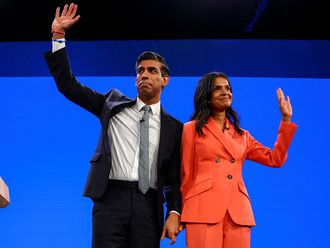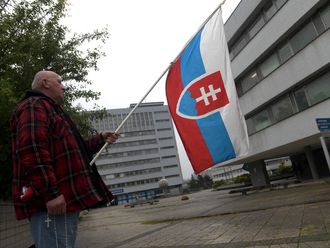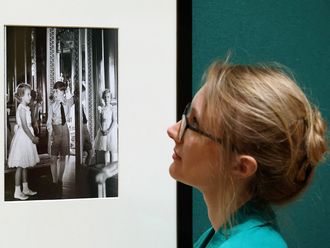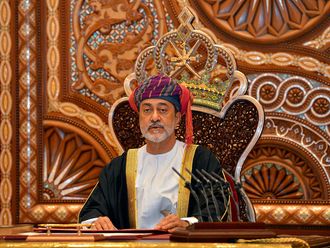Brussels: The European Union’s highest court ruled on Tuesday that firms may ban staff from wearing Islamic headscarves and other visible religious symbols under certain conditions.
Here are some reactions to the judgement:
Francois Fillon, French conservative presidential candidate: “The judgement ... defends the secular nature of society and puts a stop to the pushing of religious interests ... It is a huge relief, not only to thousands of companies but also their employees. This judgement will surely contribute to social cohesion and peace throughout Europe, and notably France.”
Chief Rabbi Pinchas Goldschmidt, President of the Conference of European Rabbis: “With the rise of racially motivated incidents and today’s decision, Europe is sending a clear message — its faith communities are no longer welcome. Political leaders need to act to ensure that Europe does not isolate religious minorities and remains a diverse and open continent.”
John Dalhuisen, Amnesty International: “Today’s disappointing rulings ... give greater leeway to employers to discriminate against women — and men — on the grounds of religious belief. At a time when identity and appearance have become a political battleground, people need more protection against prejudice, not less.”
G4S, company whose ban in Belgium was upheld by the ECJ: “In many countries such as the UK where there is no strong tradition of religious and political neutrality, G4S permits the wearing of religious dress such as Islamic headscarves.”
Amel Yacef, chair of the European Network Against Racism: “It effectively bars all Muslim women wearing the headscarf from the workplace. This is nothing short of a Muslim ban applied only to women in private employment.
“Muslim women already experience significant obstacles in finding and keeping a job and this decision will only make matters worse, giving employers a licence to discriminate.”
Jonathan Chamberlain, at British law firm Gowling WLG: “The decision brings EU law into line with what has been the UK’s approach for some years. For example, it’s fine for employers to have a dress code but it needs to be applied with some sensitivity and flexibility to take account of religious beliefs. What is almost certainly never OK is for an employer to tell an employee to stop wearing a religious symbol because a particular customer has asked for it.”
Carla Amina Baghajati, Austrian Islamic body IGGO: “Participation in the workplace is a key to social cohesion, for women’s right to work and their inclusion in society. If this ruling is taken by employers as an invitation to take restrictive action, that would be a serious consequence for Muslim women who want to wear a headscarf because they would be shut out.”
Maryam Hmadoun, Open Society Justice Initiative: “This disappointing ruling weakens the guarantee of equality that is at the heart of the EU’s anti-discrimination directive.
In many member states, national laws will still recognise that banning religious headscarves at work is discrimination. But in places where national law is weak, this ruling will exclude many Muslim women from the workplace. European Union lawmakers must now act quickly to make it clear that the scope of this directive includes direct discrimination on the basis of religious dress.”
Forum of European Muslim Youth and Student Organisations: “Muslim women already face significant obstacles in getting an education or finding and keeping a job and this decision will only make matters worse, giving employers a licence to discriminate. In Belgium, for instance, 44 per cent of employers agree that wearing a headscarf can negatively influence the selection of candidates. In this case, this judgement forces Muslim women who wear a headscarf, Sikhs wearing a turban and Jews wearing a kippa to choose between their religious expression, which is a fundamental right, and their right to access the labour market.”












